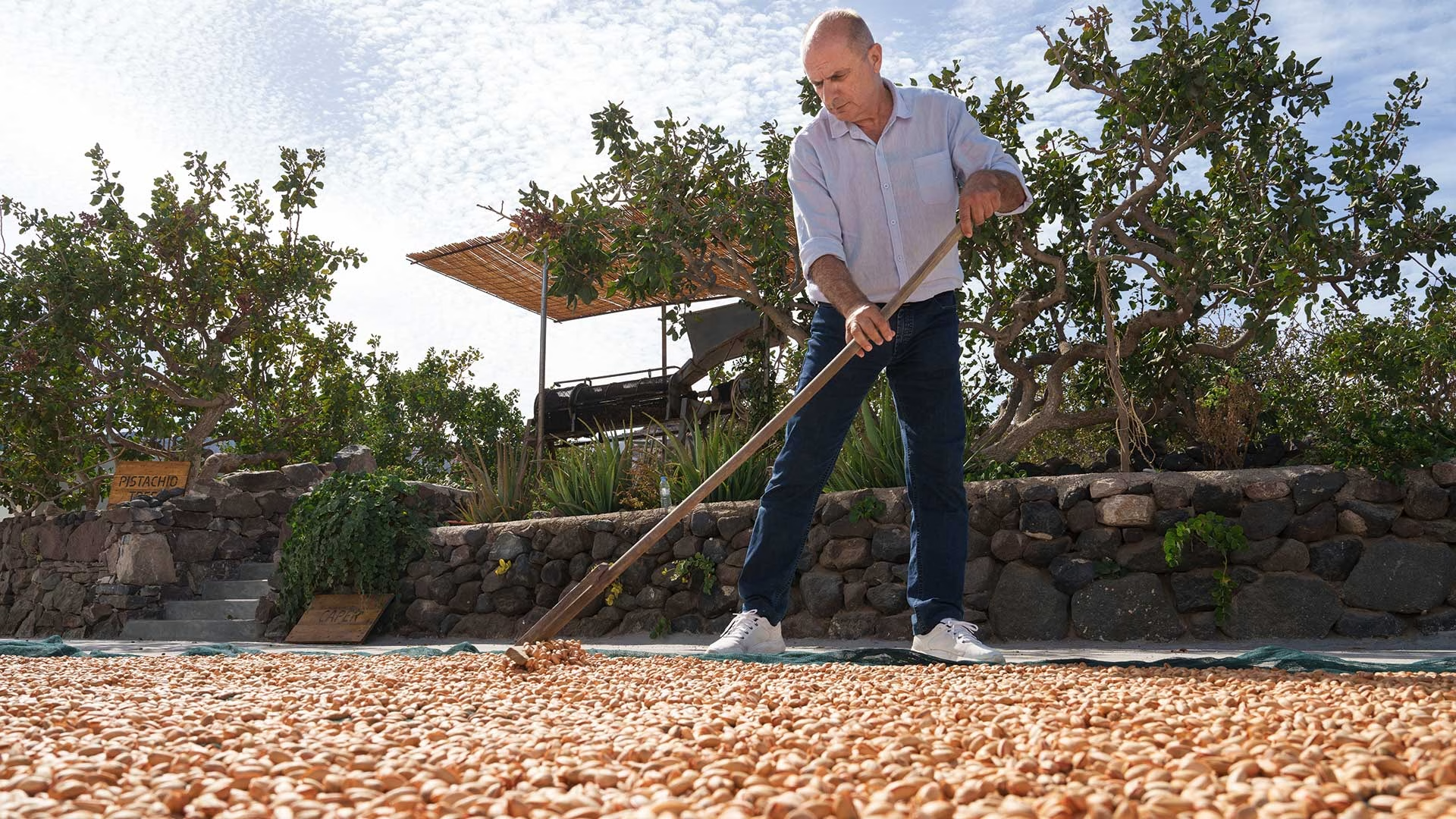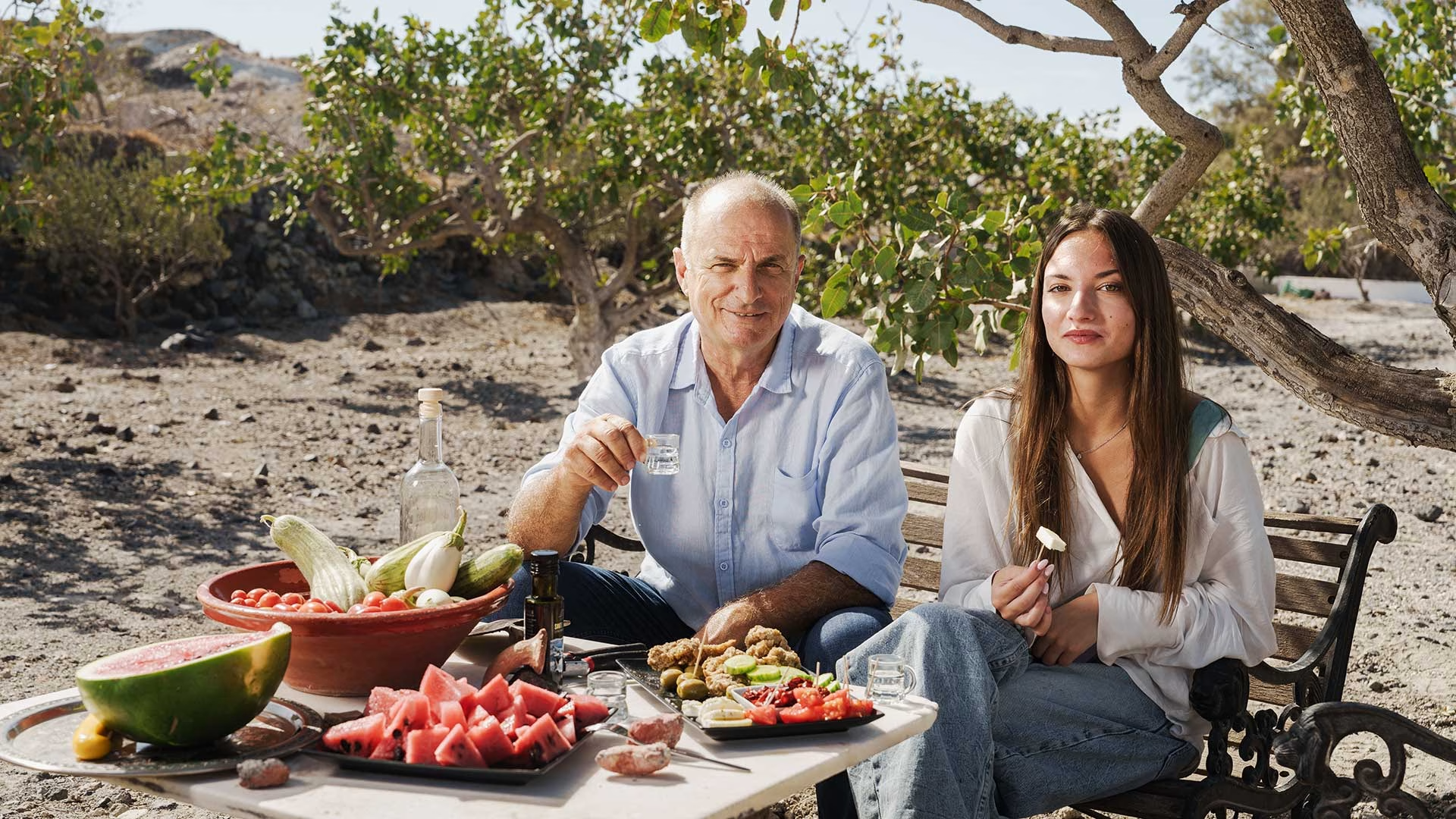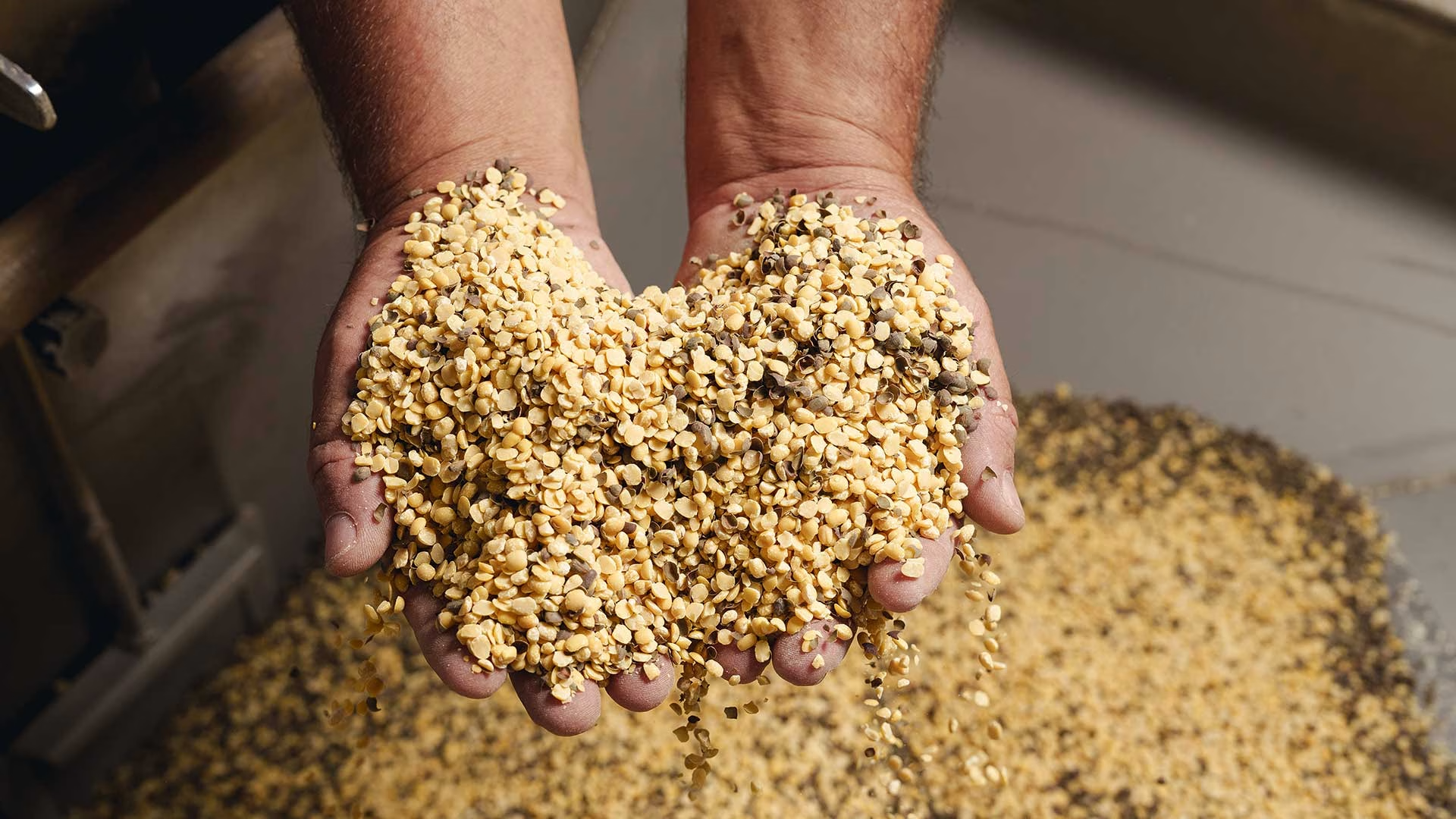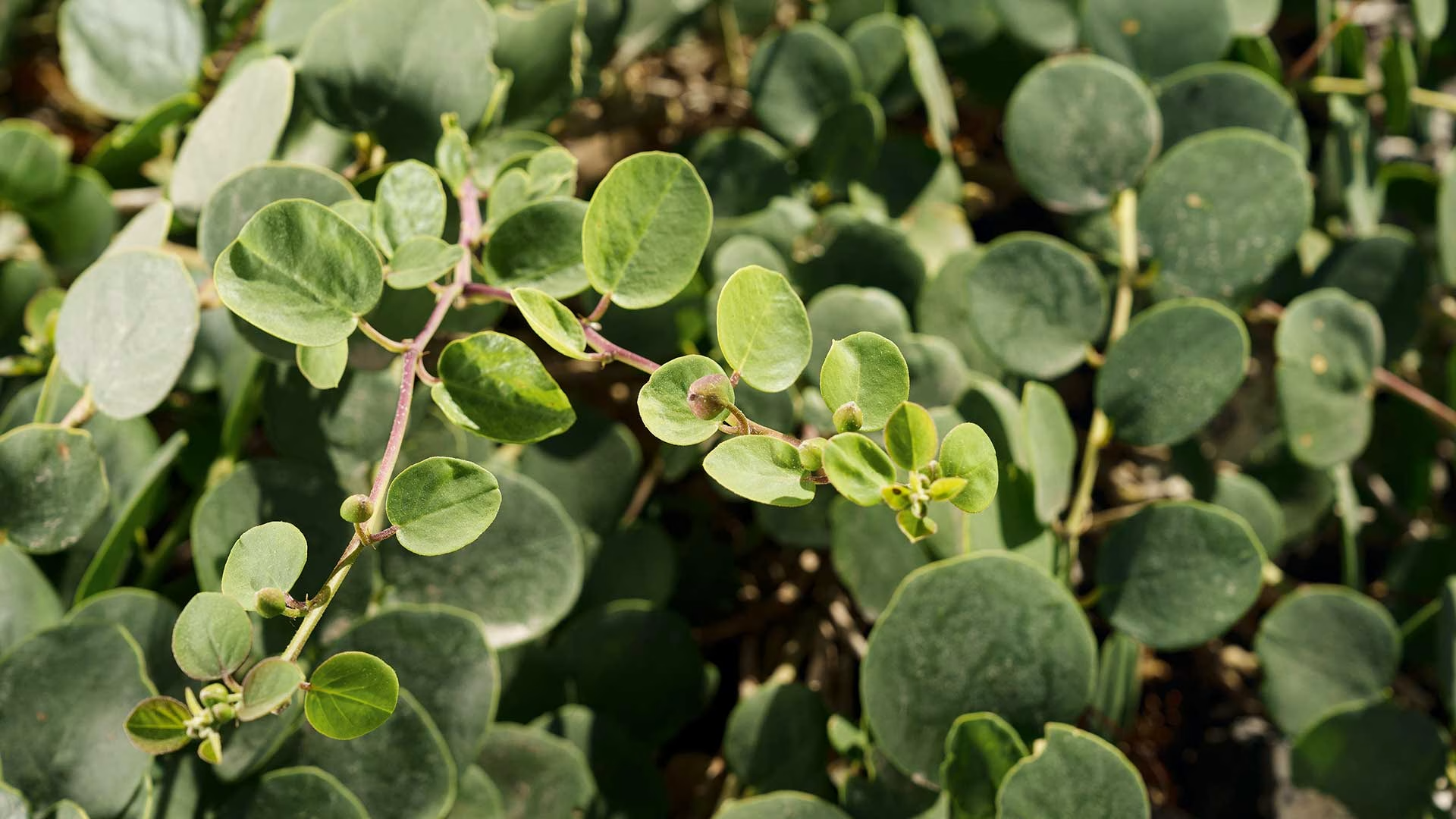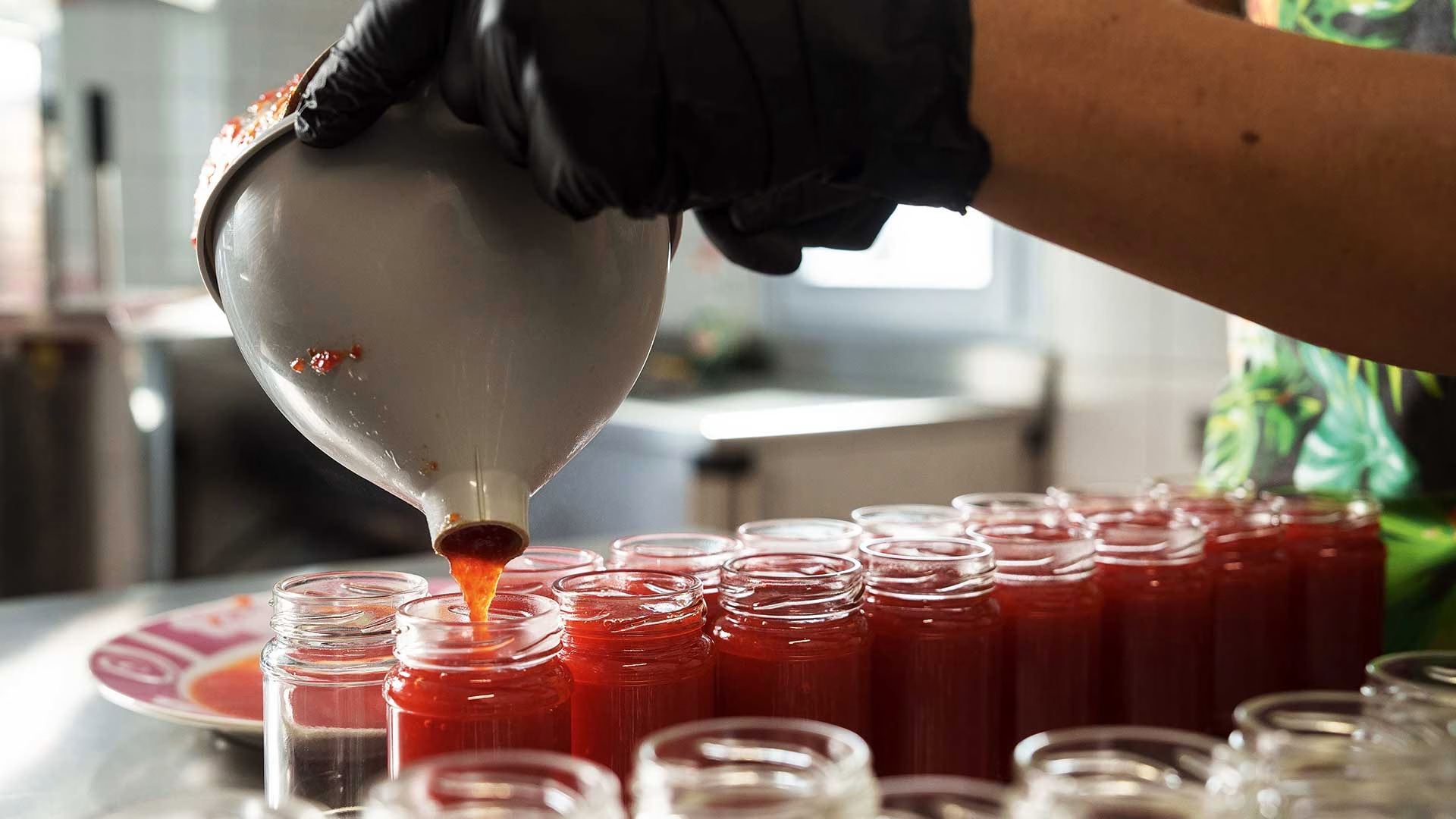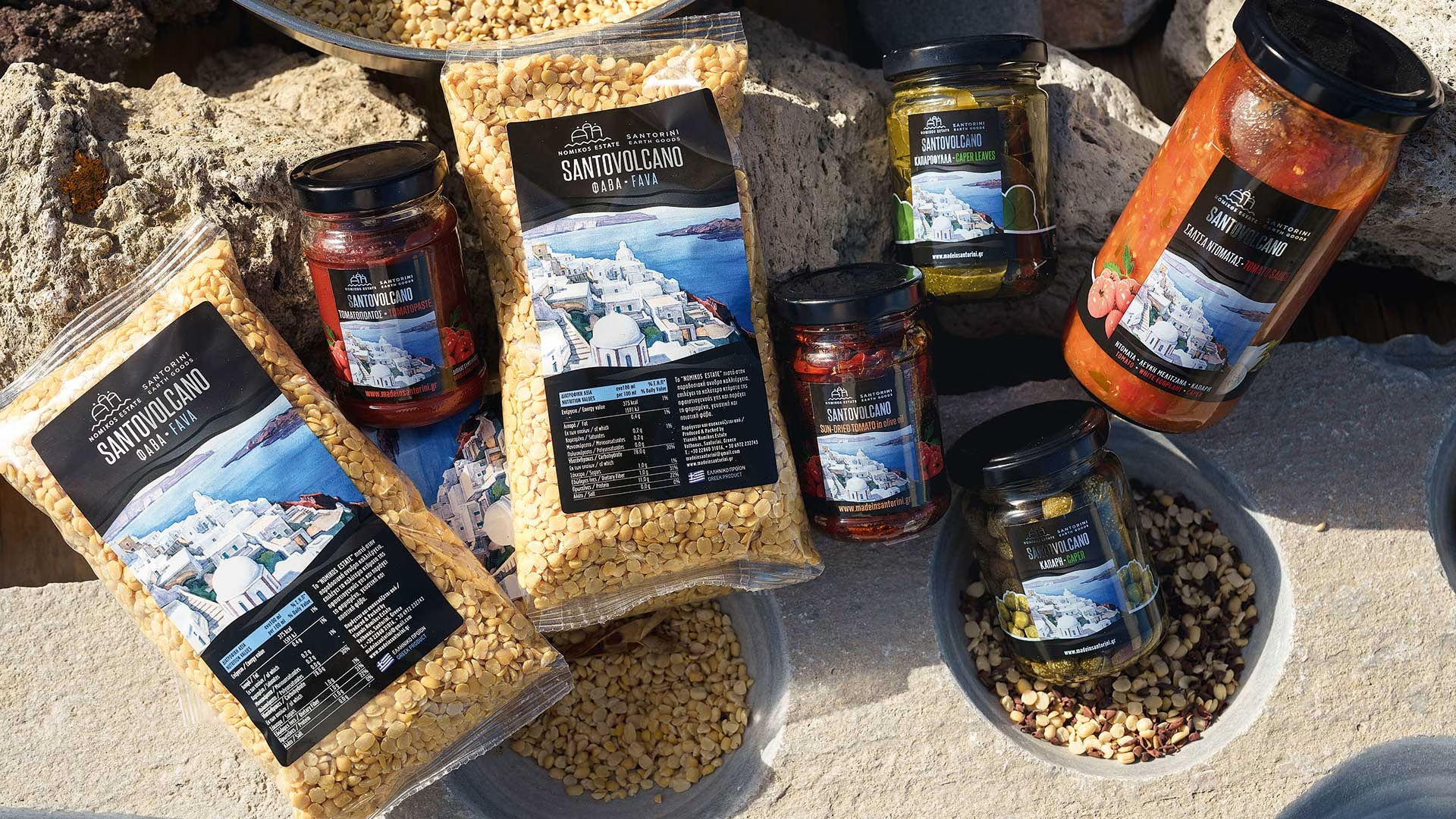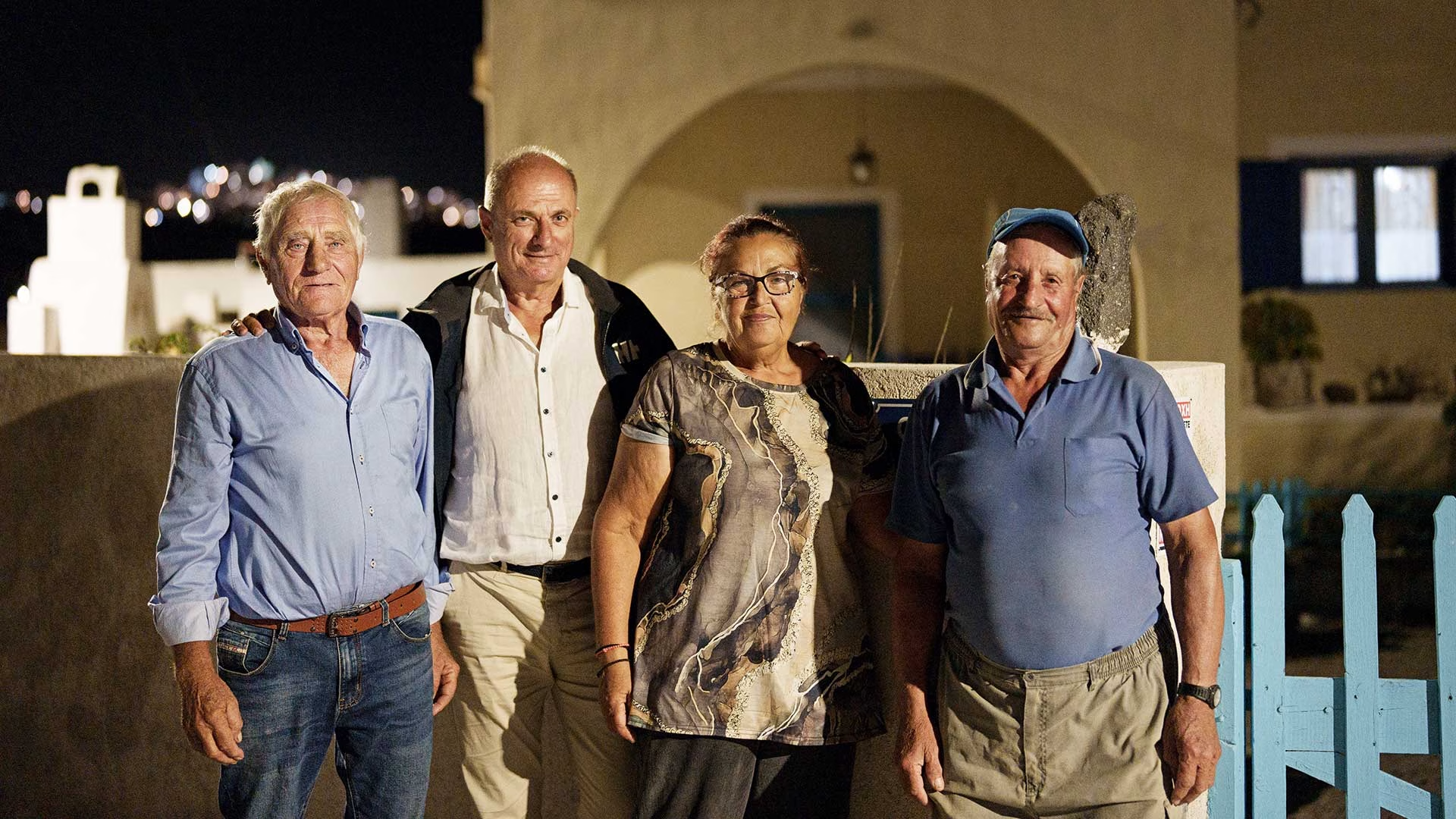Article in Gastronomos magazine
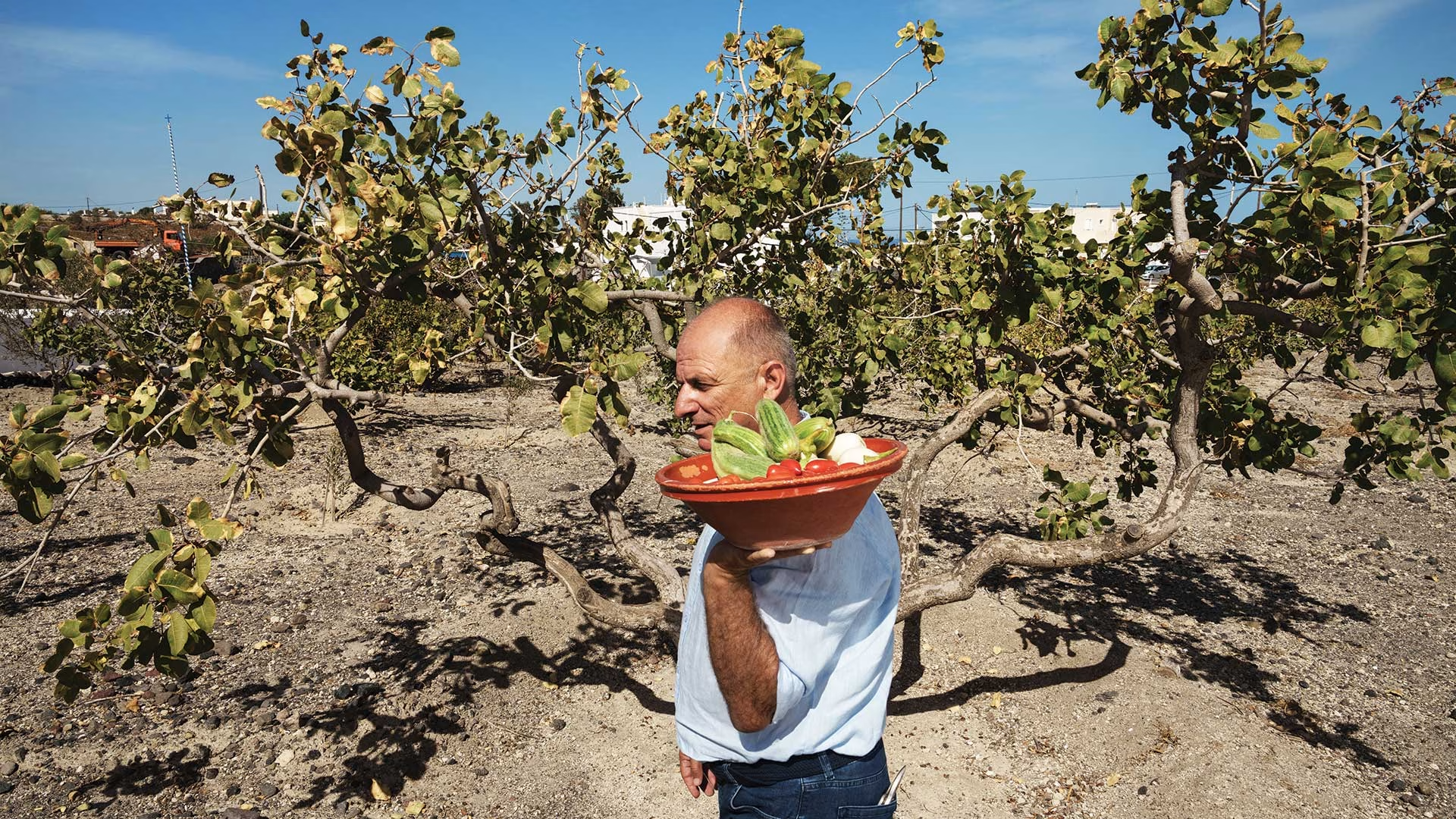
Υiannis Nomikos: The farmer preserving the DNA of Santorini
by Yiannis Papadimitriou, Photos: Konstantinos Tsakalidis
Against the tide of the island’s tourism boom, Giannis Nomikos — who won the Traditional Products Award at the Gastronomos Quality Awards — insists on investing in agricultural land.
Today 58 years old, Giannis Nomikos was born and raised in the fields of his parents in Exo Gonia, Santorini, playing hide and seek among the pistachio trees. There, he learned how to sow fava beans, pick tomatoes, tend to the vineyards, and, more importantly, to respect the land of his homeland. His dream was to see the family’s products packaged under their own label, since his farmer parents used to sell them “in bulk” to the island’s wholesalers. He was among the first cultivators to send the then-famous Santorini peas and broad beans to the street markets of Athens. Giannis’ destiny was, to a large extent, preordained, as the idea of creating an estate had deeply taken root in him. Of course, making his dream a reality was anything but easy.
Yiannis grew up among pistachio trees. Here, he spreads pistachios out to dry in the sun.
He left his beloved island to study in the Department of Statistics at the University of Piraeus. Then came his military service, and after completing it, unlike most of his classmates who stayed in Athens for work, he decided to return to the island in 1993. Seven years later, he managed his first winemaking effort alongside Haridimos Hatzidakis — he had gathered a large quantity of Mavrotragano grapes. However, ongoing disagreements with his father, George, who was afraid to take the “leap” and package their products, led Giannis to work in the restaurant business in Fira. Eventually, in 2005, he founded the Nomikos Estate, and three years later, he launched his first packaged products: fava beans and pistachios, under the brand name Nomikos Estate Santo Volcano.
Life on the farm
“When I was little, I used to hide from my father so he wouldn’t take me with him to the fields. Those weren’t easy times. I would usually sneak away from the fields earlier to cook some manestra (a type of pasta dish) for my parents. I remember getting sick once during a garlic harvest. There was nothing else to eat, so I ate garlic all day long — and I didn’t touch it again for over twenty years,” Giannis recalls, having learned the habits and peculiarities of each crop beside his father. “As I grew older, I wanted to help him, even though the conditions were really tough. Even when my back hurt, especially when hoeing the vineyards, I didn’t stop. The most important advice he gave me was to observe the land. He told me that all the signs are in the field. If you pay close attention, you can tell, for example, when a vine is thirsty.”
The farmer Yiannis Nomikos, together with his daughter Georgina, cultivates four different varieties of local tomatoes at his visitor-friendly farm in Vothonas. However, the main crops on the estate are capers and fava.
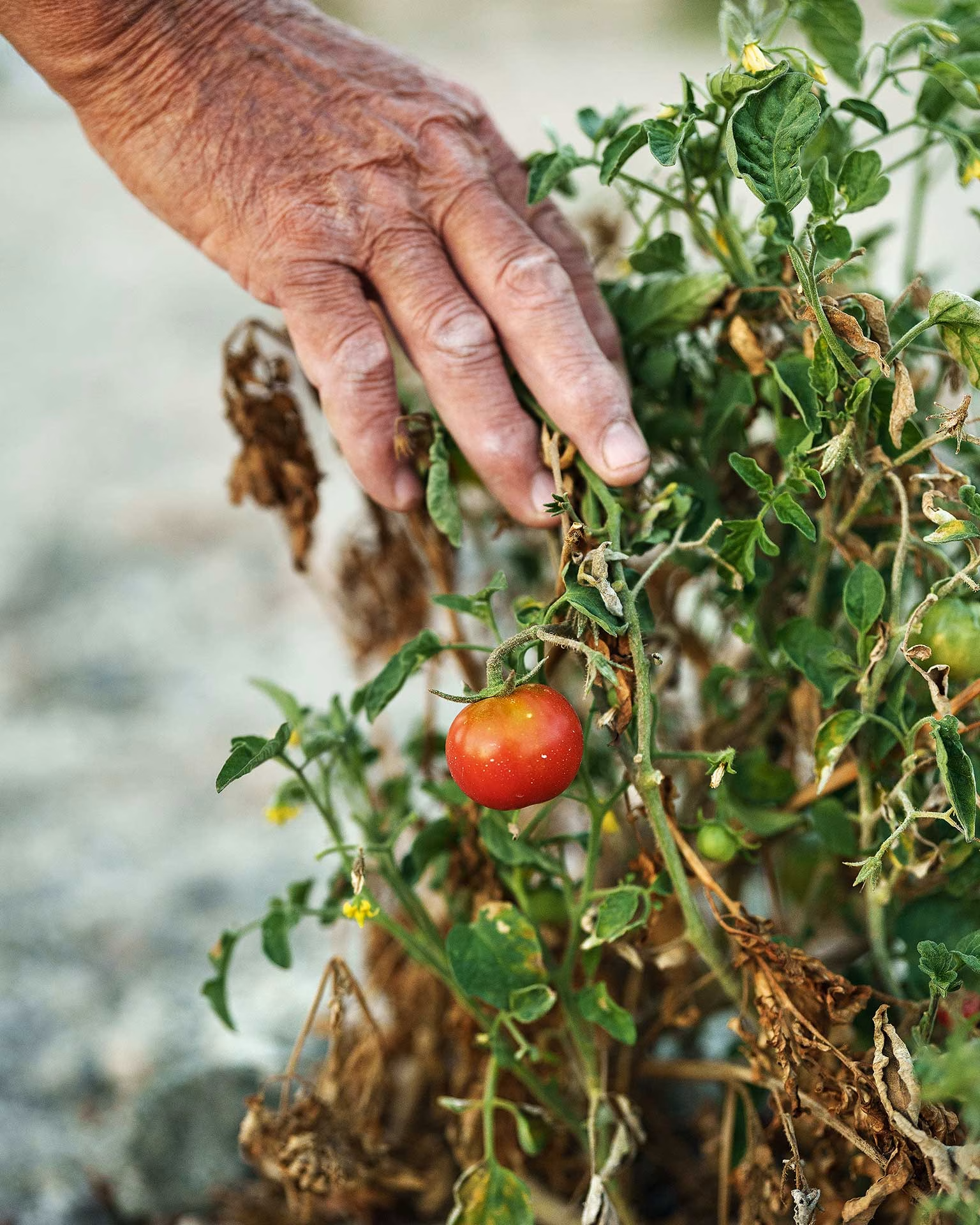 |
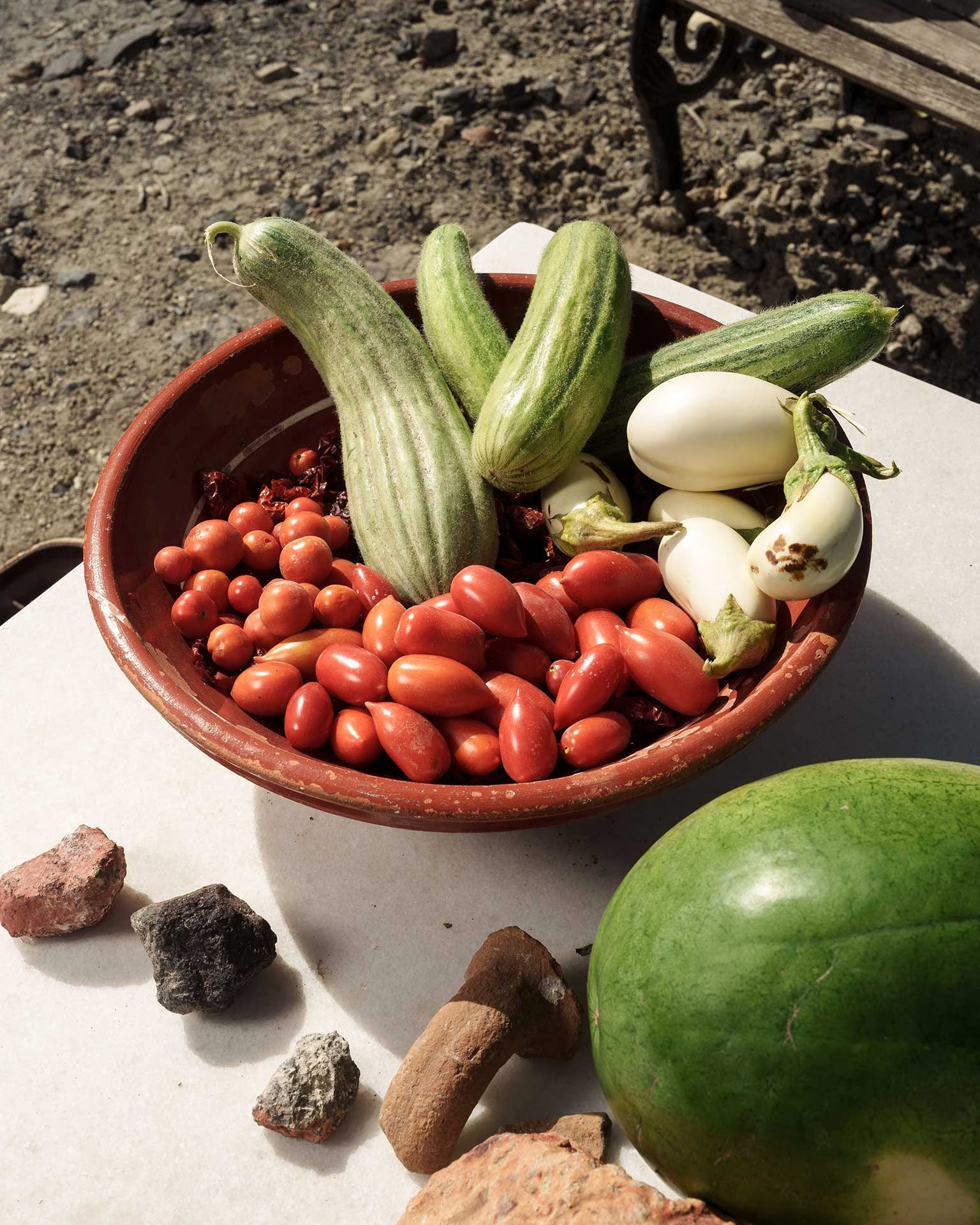 |
He also taught him to be humble and patient. “Only when you have the fava in your hands can you say you have a harvest; how many times have we lost the crop at the last minute,” he used to remind him. What Giannis loved most was the silent communication with himself. “The land brings solitude; we spent so many hours together without speaking. Sometimes, I felt like I could hear myself — those were the deepest conversations I had,” he explains. Gradually, he managed to decipher his father’s folk-agricultural philosophy and transform his childhood experiences into modern cultivation practices, always preserving the essence of tradition.
A modern farm
At his visitable farm, covering almost 27 stremmas (around 6.7 acres) of white volcanic soil, Giannis uses exclusively his own local seeds, thus preserving the “taste memory” of the island’s products. He strictly applies low-intervention farming practices and combines traditional planting techniques with modern technology. He also collects rainwater in a vaulted tank, since desalinated or well water contains too many salts.
His operation is divided into two main sections. The first includes the production, processing, and storage of products, primarily tomatoes, capers, fava beans, olives, and pistachios. In fact, because his sorting machine is state-of-the-art, producers from other Cycladic islands send him their fava beans for packaging.
The tomato jam is one of his top products.
The second section is an elegant tasting and presentation space where visitors can understand the differences among the four types of local tomatoes: the classic one with its distinctive ridges, the kaïsa (a hardy small tomato), the gotika (industrial variety of the island), and the apanomeritiki (mainly cultivated in Oia).
Nomikos Estate Santo Volcano products are available both in the domestic market and in high-end gastronomy restaurants abroad.
Yiannis Nomikos with friends and collaborating producers.
“Most people abandon the land because they face too many difficulties — for example, finding workers. Of course, tourism dominates. I have been trying in recent years to combine traditional farming with visitor education by creating various experiential activities on the farm. Santorini is its land, not its accommodations,” Giannis emphasizes, remaining steadfast in his commitment to investing in agricultural land. That’s how dreamers are — they chase their visions. And that’s why he continues to live among his beloved pistachio trees.


